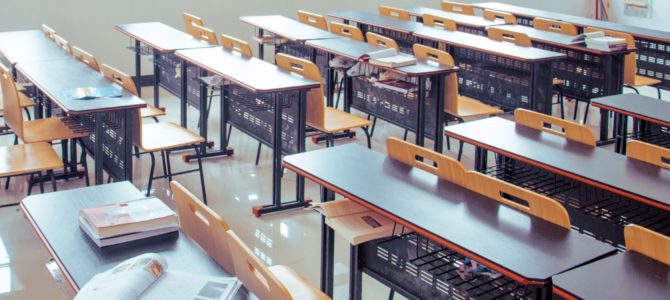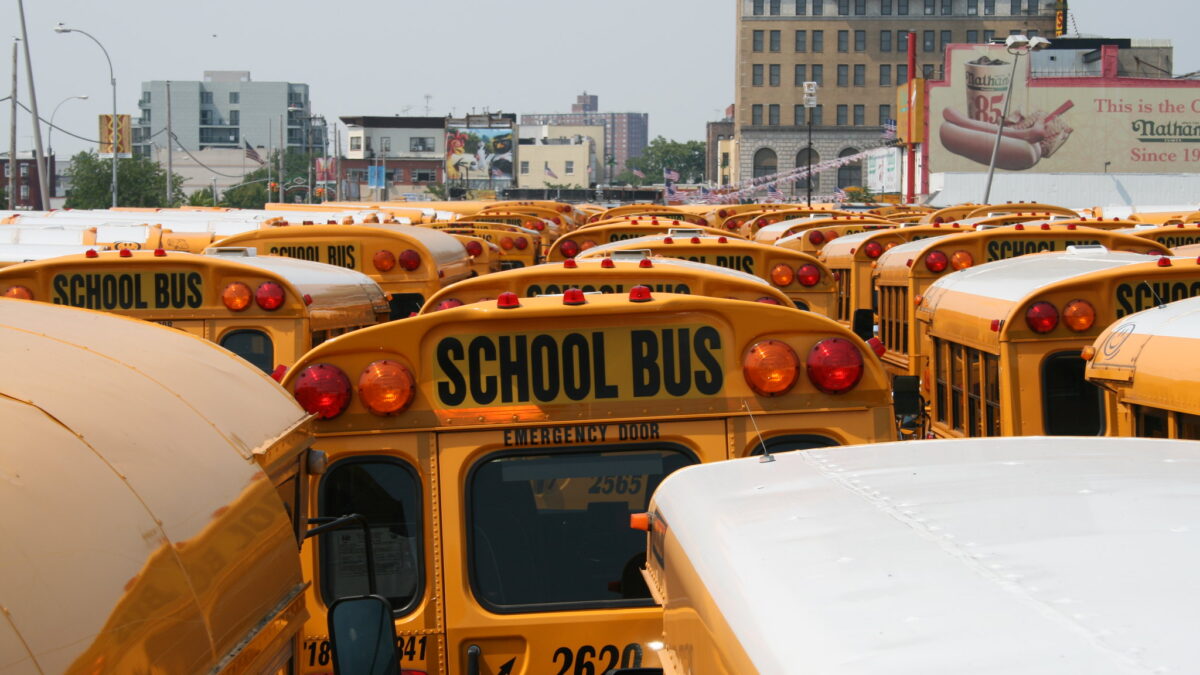
Teachers unions in Illinois are pushing a bill through the General Assembly that would strip local school districts, health departments, and private schools of their authority to make health-related decisions, centralizing those powers at the state level.
House Bill 2789 requires the Illinois Department of Public Health to create new regulations governing in-person instruction, which must “include, but … not [be] limited to, personal protective equipment, cleaning and hygiene, social distancing, occupancy limits, symptom screening, and on-site isolation protocols.” Any school — public or private — failing to comply with these new regulations would not be allowed to offer in-person instruction in Illinois.
While this measure is consistent with teachers unions’ nationwide agitation to thwart in-person instruction, a few things set the Illinois bill apart as being uniquely onerous.
A Power Grab Not Limited to Public Health Crises
Bizarrely, while this bill is described as the “COVID-19 Safe Schools bill,” all language referring to public health emergencies was struck from the final version. In its analysis, think tank Illinois Policy observes:
The version that passed the House does not refer to COVID-19 or emergency situations at all and does not have an expiration date for the new regulatory regime. … On its face, it would affect when and how an Illinois school could offer in-person learning even after the pandemic recedes and the governor’s emergency powers expire.
Indeed, it’s hard to believe Illinois parents would want mandatory rules on PPE and social distancing to continue governing their children’s school lives permanently. The regulations the Illinois Department of Public Health would establish for schools are yet to be seen, but we know they would be required to cover these areas, and that local superintendents would have no say about whether to comply.
Even Bureaucrats Oppose This Bill
In another strange development, the principal state agency named in the bill — the Illinois Department of Public Health — opposes the legislation. Witness slips show the agency testified against both the initial and final versions of H.B. 2789.
Other opponents included the Illinois State Board of Education, Chicago Public Schools, dozens of private citizens, and a handful of individual educators. The only organizations testifying in favor were the Illinois Education Association and the Illinois Federation of Teachers, the state’s two largest teachers unions.
Additionally, it’s worth noting the unions aren’t hiding that this is entirely their bill, as the Illinois Education Association admits on its own Facebook page. Remarkably, even with state health and education bureaucrats in opposition, Democrat lawmakers had no difficulty siding with the unions, and H.B. 2789 passed on a near party-line vote, 70-42, and now awaits final consideration by the Illinois Senate.
The Real Target: Private Schools
Originally introduced in February, the bill was significantly amended at the last minute — the same day it passed the House. For the first time, the amended version included the words “non-public schools,” making private schools subject to the same new regulatory regime as their public-school counterparts.
To be sure, although some right-of-center outlets argue H.B. 2789 would also affect homeschoolers, the Home School Legal Defense Association disagrees. “The authority H.B. 2789 grants to the Department to regulate ‘in-person instruction’ at schools would not apply to the home setting,” states HSLDA attorney Daniel Beasley.
Upon learning of the bill, private school administrators expressed consternation. “We work closely with the local health department and local medical experts and have been one of the few schools to remain open for full-time, in-person instruction … every day,” said Jeremiah Auble, superintendent of Springfield Christian School, in a published statement. “Our parents have been so appreciative. Unlike a public school, our parents choose to send their students here. They wouldn’t send their children here if it were unsafe.”
In an email exchange, Auble revealed public-sector unions like the IEA and IFT retain an outsize influence in Illinois politics:
The Illinois legislature often seeks to advocate for teachers unions — even though many public school teachers and administrators don’t share the unions’s views. While unions oppose parental choice and seem to feel threatened by the existence of private schools, that’s not true of their members. I’ve heard public school teachers advocate for school reopening, pointing to schools like ours as proof that it can be done.
Indeed, private schools have been far more likely to find ways to re-open in communities where public schools remain closed. As the Cato Institute has pointed out, this is partly due to the simple fact that public schools enjoy a guaranteed revenue stream, whether they meet the needs of families or not. But Auble says his school’s primary concern is for the students: “The first question we ask is always ‘What’s best for kids?’”
The school’s open doors have been a draw for desperate families. “We’ve seen significant interest from parents: nearly three times the number of inquiries and transfers than what’s typical,” Auble notes. “Unfortunately, complying with COVID safety protocols reduced our capacity to accommodate the increased demand. We’ve been as creative as possible, but we’ve still had to turn several good families away — especially in Grades K-3 when remote learning is incredibly challenging for young learners.”
If the Illinois teachers unions get their way, expect more young learners to be turned away from an in-person education.









